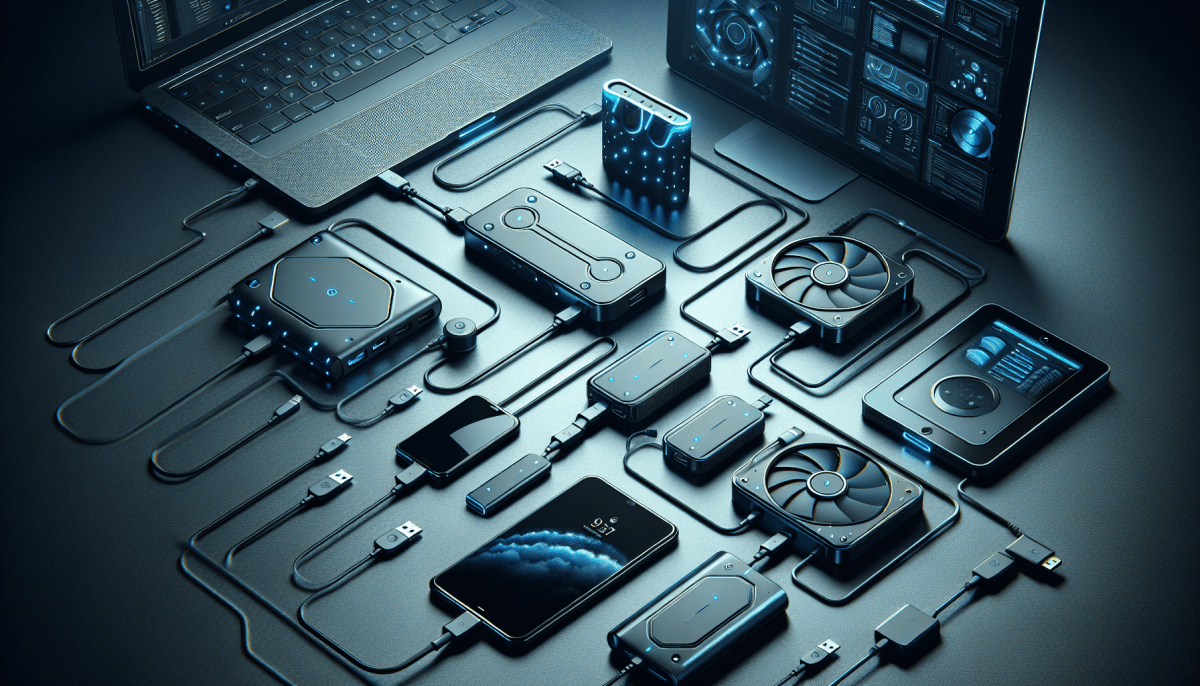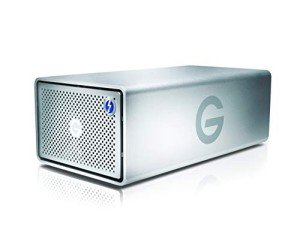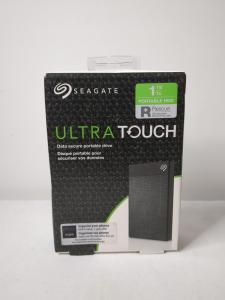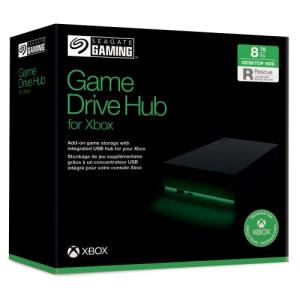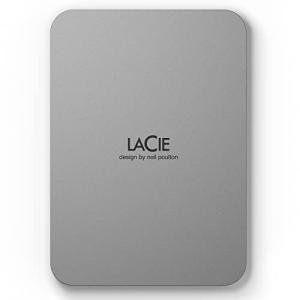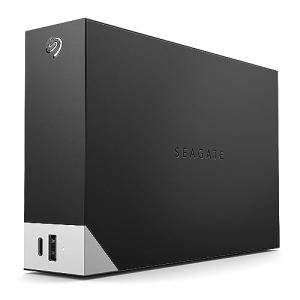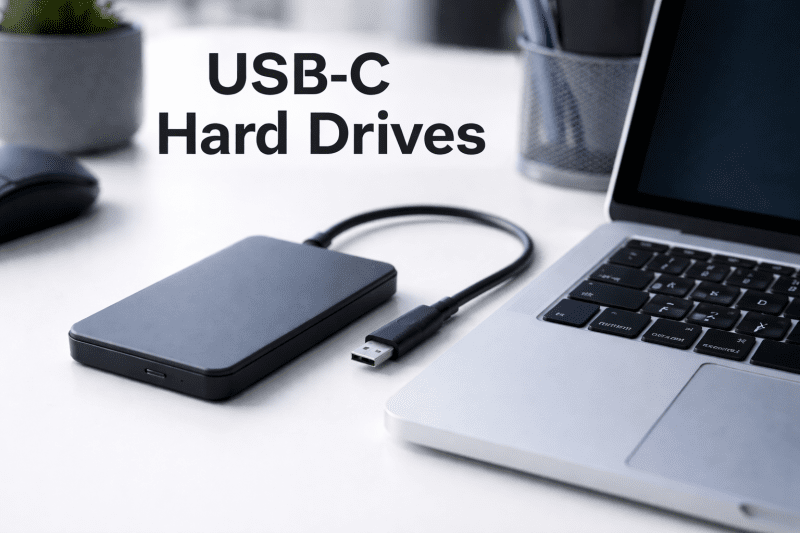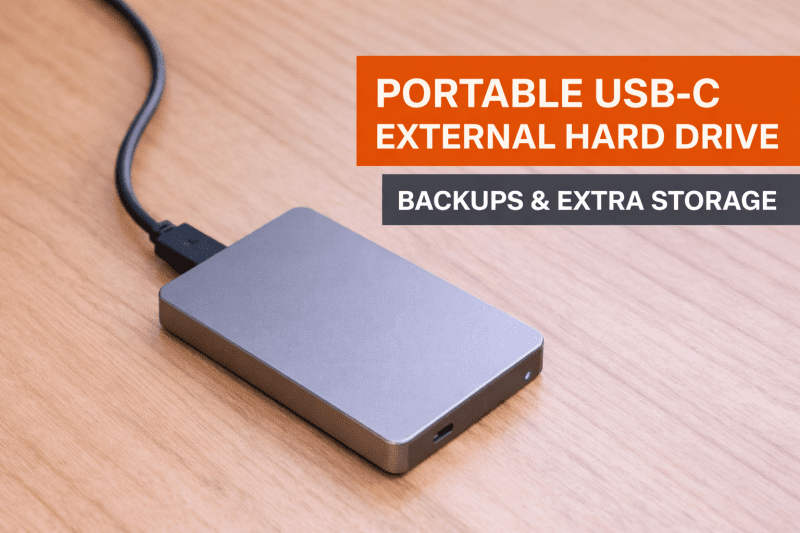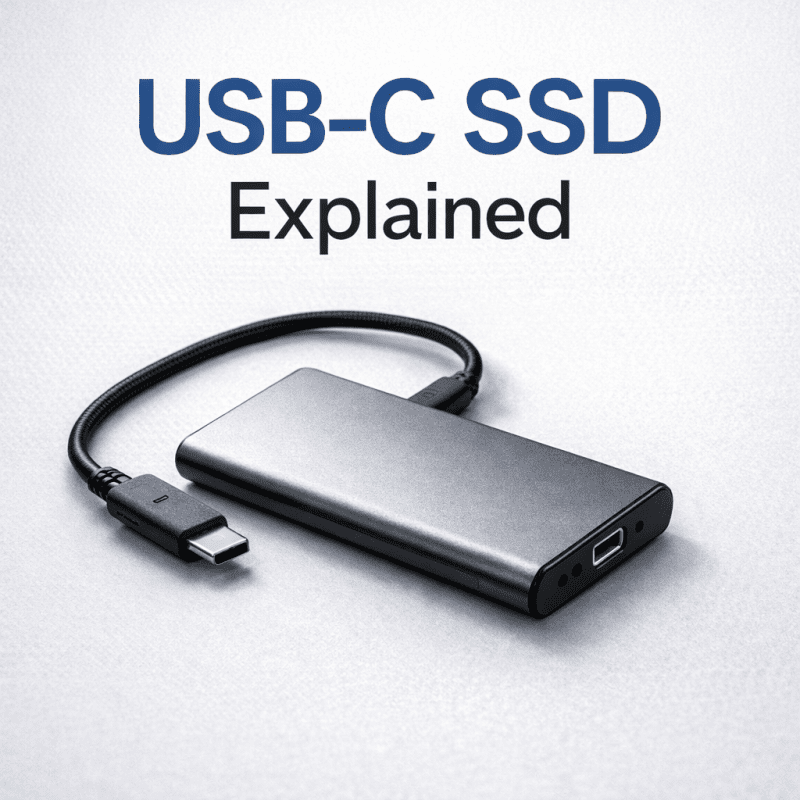The Benefits of External Hard Drives with USB-C: Increased Speed and Connectivity
External hard drives have become an essential tool for anyone who relies heavily on their computer for work or personal use. With the rise in popularity of USB-C, external hard drives that feature this connector have become increasingly popular. This is due to the many benefits that USB-C offers over other types of connectors.
Increased Speed
One of the most significant benefits of external hard drives with USB-C is their increased speed. USB-C supports data transfer rates of up to 10Gbps, which is twice as fast as the previous USB 3.0 standard. This means that you can transfer large files, such as videos or high-resolution images, much more quickly than before. Faster transfer speeds also mean that you can backup and restore data much more quickly, saving you time and ensuring that your data is always backed up.
Connectivity
Another benefit of external hard drives with USB-C is their connectivity. USB-C is a reversible connector, meaning that you can plug it in either way up. This is a significant advantage over older USB connectors, which could only be plugged in one way. USB-C is also the same on both ends, meaning that it can be used to connect devices together without the need for adapters or cables. You can use your external hard drive with USB-C to transfer files between devices, backup important files, or use it as additional storage for your computer or mobile device.
Compatibility
External hard drives with USB-C are also compatible with a wide range of devices. USB-C is becoming increasingly popular on mobile devices, such as smartphones and tablets, and many new laptops now feature USB-C ports. This means that you can use your external hard drive with USB-C to transfer files between devices, backup important files, or use it as additional storage for your mobile device.
Overall, the benefits of external hard drives with USB-C are clear. They offer increased speed, improved connectivity, and are compatible with a wide range of devices. If you are in the market for an external hard drive, consider one with USB-C to take advantage of these benefits.
Choosing the Right External Hard Drive with USB-C: What to Look for and Consider
If you're looking to invest in an external hard drive with USB-C, there are a few things you should keep in mind. Below, we've outlined some key factors to consider before making a purchase.
Storage Capacity
The first thing you'll want to consider is how much storage capacity you need. External hard drives with USB-C come in a range of sizes, from a few hundred gigabytes to several terabytes. If you're only planning on storing a small amount of data, a 500GB drive might be sufficient. However, if you're a photographer or videographer who needs to store large files, you'll likely need a drive with at least 1TB of storage.
Speed
The speed of the external hard drive is also an important factor to consider. USB-C is known for its fast data transfer speeds, but not all external hard drives with USB-C are created equal. Look for one that has a high read and write speed in order to transfer files quickly. A solid-state drive (SSD) will typically offer faster speeds than a traditional hard disk drive (HDD), but it may also be more expensive.
Form Factor
Another thing to consider is the form factor of the external hard drive. Do you want a portable drive that you can easily take on the go, or a larger desktop drive that sits on your desk? Portable drives are typically smaller and lighter, making them a great choice for frequent travelers. Desktop drives, on the other hand, often offer larger capacities and faster speeds, but may require an external power source.
Reliability
When it comes to storing your important data, reliability is key. Look for an external hard drive that is built to last and has a good reputation for reliability. You can also read reviews from other users to get an idea of how well the drive has held up for them over time.
Price
Finally, you'll want to consider your budget. External hard drives with USB-C can vary widely in price, depending on their size, speed, and other features. While it may be tempting to opt for the cheapest option, keep in mind that you often get what you pay for. Investing in a high-quality external hard drive can save you headaches and data loss in the long run.
By considering these factors when shopping for an external hard drive with USB-C, you'll be able to find the right one for your needs and ensure that your data is stored safely and securely.
Maximizing the Potential of External Hard Drives with USB-C: Tips and Tricks for Optimal Performance
External hard drives with USB-C connectivity offer a range of benefits, including faster data transfer speeds and improved compatibility with modern devices. However, to truly maximize the potential of these devices, there are a few key tips and tricks to keep in mind.
1. Choose the Right Drive
The first step in optimizing your external hard drive performance is to choose the right drive for your needs. Look for a drive with a USB-C port that offers the highest speed and bandwidth possible, such as Thunderbolt 3. Also, consider the size and storage capacity of the drive, as well as any additional features such as encryption and backup software.
2. Format the Drive Correctly
Next, it's crucial to format your external hard drive correctly to ensure optimal performance. If you're using a new drive, it may come pre-formatted with a specific file system, such as macOS Journaled or NTFS. However, you may need to format the drive for your specific needs, such as using exFAT for compatibility with both Mac and Windows systems.
3. Keep Your Drive Clean and Organized
Over time, your external hard drive can become cluttered with unnecessary files and folders, which can slow down its performance. To keep your drive running smoothly, regularly delete any files or folders that you no longer need and keep your data organized in a logical and easy-to-navigate system.
4. Use a Reliable Cable
Your external hard drive's speed and performance are heavily dependent on the quality of the USB-C cable you're using. Make sure to use a cable that is compatible with your device and offers the highest speed and bandwidth possible. Additionally, ensure that the cable is in good condition and not damaged, as this can cause data transfer errors and other issues.
5. Eject Your Drive Safely
Finally, it's essential to always eject your external hard drive safely before disconnecting it from your device. This ensures that all data is written to the drive and that there are no errors or corrupt files that could cause performance issues or data loss.
By keeping these tips and tricks in mind, you can truly maximize the potential of your external hard drive with USB-C connectivity. Whether you're using it for backup and storage or transferring large files, these simple steps can help you get the most out of your device.
G-Technology 24TB G-RAID Thunderbolt 3 & USB-C
Supercharge your storage with speedy data transfers and massive capacity
Product information
$1,799.99
Product Review Score
4.49 out of 5 stars
119 reviews